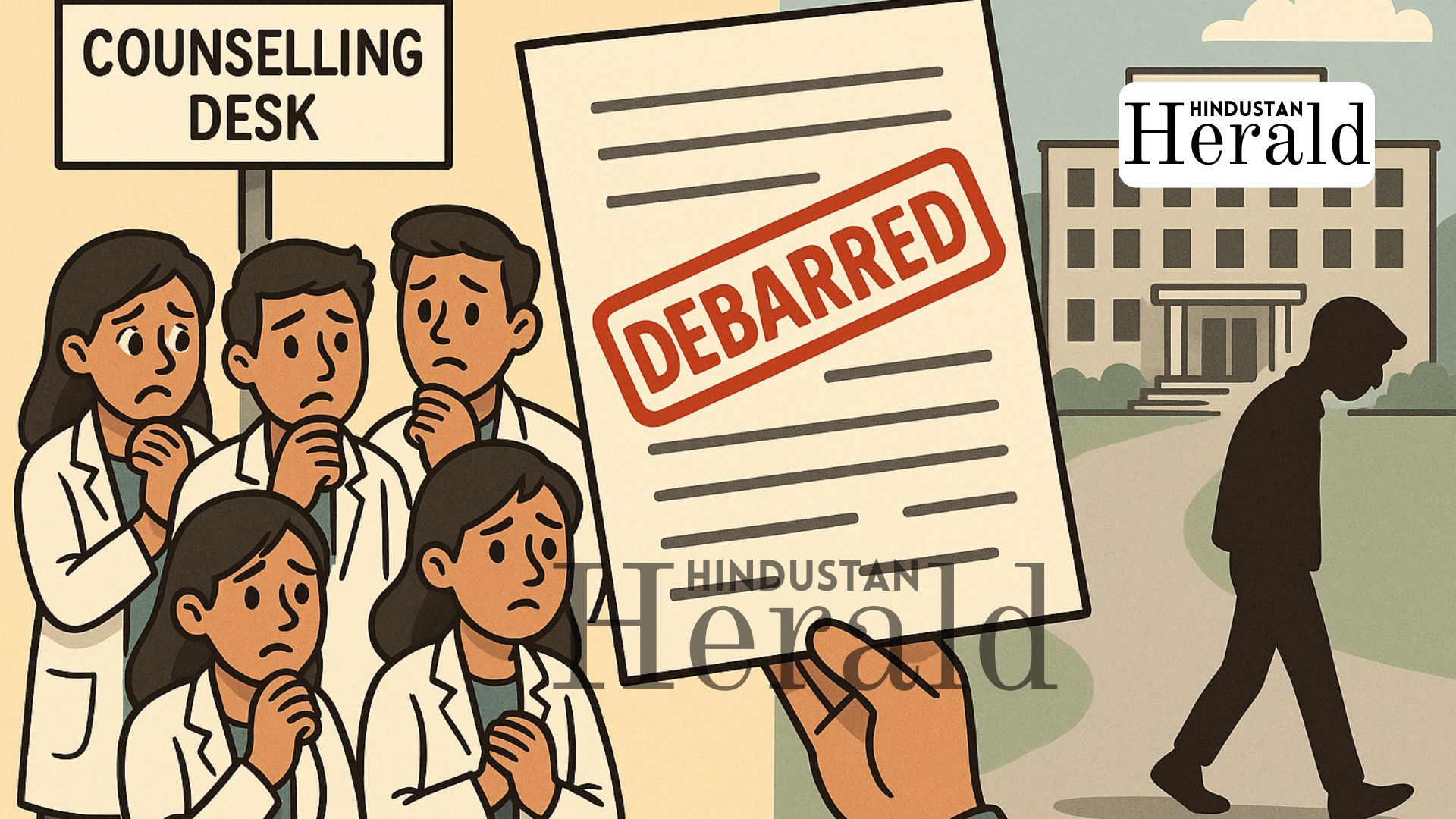Lucknow, September 24: In Uttar Pradesh, the season of NEET counselling has once again turned into a mix of nervous waiting, administrative crackdowns, and heart-wrenching headlines. On one side, thousands of medical hopefuls are refreshing the upneet.gov.in website, desperate to see where the second round of allotments will land them. On the other hand, the state has just blacklisted nearly 150 postgraduate aspirants, while news from Maharashtra of two students dying by suicide has cast a long shadow over what should have been a moment of pride.
The Second Round Jitters
The counselling schedule looks neat on paper: results of the UG Round 2 allotment are expected today, allotment letters downloadable tomorrow, and admission windows spread across September 25 to 27, September 29 to 30, and finally October 3. But neat is not how it feels on the ground.
For families in small towns and rural districts, this period is chaos. Parents scramble for documents, hunt for guarantors for bank loans, and try to arrange accommodation in cities they have never even visited before. Some keep entire suitcases packed, ready to leave at a day’s notice the moment a seat is confirmed. It is not just a process. It is an upheaval.
A Punishment List From DGME
While undergraduates wait for their fate, postgraduate candidates are staring at something harsher: punishment. The Directorate General of Medical Education (DGME), Uttar Pradesh, has released the names of 148 students barred from further rounds of NEET PG 2025 counselling. Their offence was withdrawing seats after securing them.
On the state’s part, the frustration is real. Every withdrawal is a lost opportunity for another student and often leaves specialist posts vacant in government hospitals. But the human side of these withdrawals is murkier. Some students quit because they cannot afford the fees. Others do so because they realise too late that the chosen specialty does not fit. Yet there is little space in the system for hesitation or personal circumstances. Once a rule is written, it is enforced with a blunt edge.
When Success Becomes a Trap
And then there is the darker news that has rattled everyone watching this admission season. In Maharashtra, two young men who had cleared NEET ended their lives within days of one another.
One of them, just 19, had secured an enviable AIR 1475 and even a seat at AIIMS Gorakhpur. His suicide note reportedly said he never wanted to be a doctor. Another student in Chandrapur echoed the same sentiment. He did not want medicine but had cleared NEET under pressure from his family.
It is a cruel irony that keeps repeating in India. Aspirants die not because they failed the exam, but because clearing it locked them into futures they did not want. For them, success turned out to be the bigger burden.
The Pressure Cooker In UP
In Uttar Pradesh, these stories hit uncomfortably close. The state has expanded its network of medical colleges in recent years, and the government has often showcased this as proof of progress. Yet the same bottlenecks persist: too many students chasing a limited number of prestigious seats, endless waits between rounds of counselling, and families hanging their hopes on a handful of institutions like KGMU Lucknow or AIIMS Gorakhpur.
What rarely gets acknowledged is how little choice students actually have. Medicine is treated not just as a career, but as the pinnacle of family honor, financial stability, and social mobility. To reject it, or even to question it, can feel impossible. That is what makes these suicides so haunting. They expose the silence around dreams that do not align with the medical path.
A Bigger Question For India’s Medical System
NEET was introduced as a leveller: one exam, one merit list, fairness guaranteed. On paper, it solved the chaos of state-level exams and opaque admissions. But the cost has been high. Coaching dependence has ballooned. Families have mortgaged land and jewellery to keep their children in Kota or Lucknow hostels. And the mental health toll has been catastrophic, with student suicides tied to NEET now a grim annual headline.
The UP government’s tough stance, such as blacklisting PG students and enforcing strict timelines, may streamline logistics. But the deeper crisis cannot be solved with schedules and penalties. The question that India still has not faced is this: what happens when a child clears the toughest exam in the country, only to realise they never wanted the prize?
Today, as the Round 2 allotment results trickle out, joy will erupt in some households and heartbreak in others. But behind the numbers and notices lies a truth far messier than any PDF file. Until policymakers acknowledge that truth, that success can wound as much as failure, the cycle of celebration and tragedy will go on, year after year.
Stay ahead with Hindustan Herald — bringing you trusted news, sharp analysis, and stories that matter across Politics, Business, Technology, Sports, Entertainment, Lifestyle, and more.
Connect with us on Facebook, Instagram, X (Twitter), LinkedIn, YouTube, and join our Telegram community @hindustanherald for real-time updates.
Covers Indian politics, governance, and policy developments with over a decade of experience in political reporting.






